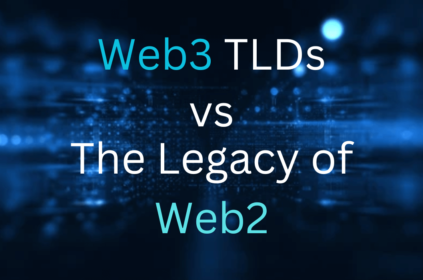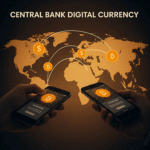Many people picture quirky digital avatars or expensive pixel art when they hear about Non-Fungible Tokens (NFTs). While digital art certainly propelled NFTs into the spotlight, this technology offers far greater potential! Indeed, NFTs Real Uses are now emerging across numerous sectors.
Think of an NFT as a unique digital certificate. It proves the authenticity and ownership of a one-of-a-kind item, whether that item is digital or even physical. This basic, yet powerful, ability explains why we’re seeing these tokens expand across so many industries, moving far beyond simple digital collectibles.
Beyond the Canvas: Exploring Practical NFT Applications
The true power of NFTs lies in their unique characteristics: they’re unique, indivisible, and offer verifiable ownership. These features are sparking innovation in diverse sectors, showing compelling NFTs Real Uses:
Revolutionizing Ownership and Authenticity
NFTs provide a clear, permanent record of who owns something. This feature is incredibly helpful for proving the authenticity of physical items. Imagine scanning a tag on your luxury watch, designer handbag, or rare wine bottle to instantly verify its history and owner on the blockchain! This combats counterfeiting and builds trust.
Empowering Creators and Intellectual Property
Musicians, writers, and other artists are finding new ways to monetize their work with NFTs. They can sell limited digital copies, offer special fan experiences, and even receive automatic royalties every time their NFT is resold in the future. This cuts out traditional middlemen, giving creators much more control and a fairer share of earnings.
Transforming Gaming and Virtual Worlds
NFTs are becoming a core part of the metaverse and blockchain-powered games. In these virtual spaces, things like digital land, unique characters, and in-game items can all be minted as NFTs. This gives players real, verifiable ownership. They can truly trade, sell, or even use these items across different games, fostering richer, player-controlled virtual economies.
Reimagining Ticketing and Access
Imagine a concert ticket that can’t be counterfeited! NFTs can serve as unique digital tickets for events and concerts. This helps prevent ticket copying, streamlines entry, and might even offer special benefits to NFT holders. Plus, these NFT tickets could be resold securely, giving buyers more flexible options.
Fractional Ownership: Making Assets Accessible
Traditionally, investing in expensive assets like real estate or high-value art was out of reach for many. However, these assets can now be divided into many smaller NFTs. This allows more people to invest in and own a small piece, opening up markets that were once exclusive to the wealthy.
Building Digital Communities and Loyalty
NFTs can act as exclusive digital membership cards for online or real-world groups. Owning a certain NFT might grant you access to private chats, special events, or unique rewards. This builds stronger communities and enhances member loyalty in exciting new ways.
Streamlining Supply Chains
For complex supply chains, NFTs offer unprecedented transparency. They can track products as they move from source to consumer, making each step clear and accountable. This helps confirm a product’s origin, ensures ethical sourcing, and generally makes the entire process more efficient and trustworthy.
Recent Examples: NFTs in Action
It’s not just theory; we’re already seeing incredible NFTs Real Uses emerge in the market:
- Nike’s .SWOOSH Platform (Ongoing): Nike’s online platform allows users to collect and trade virtual items, like digital shoes and clothes. These NFTs can be used within Nike’s digital world and potentially in other virtual spaces, blending the real and digital.
- Real Estate Tokenization (2024-2025): New platforms are emerging that allow fractions of real estate properties to be turned into NFTs. Each NFT represents a share of ownership, making property investment more accessible and potentially increasing liquidity.
- Ticketmaster’s NFT Ticketing Pilots (Ongoing): Ticketmaster has been actively testing NFTs for tickets. Their goal is to combat fraud and give fans more control over their tickets. These NFT tickets could even unlock special content or experiences.
- Luxury Goods Authentication (2024-2025): High-end brands like LVMH are using blockchain and NFTs as digital passports for their luxury items. This proves authenticity and tracks ownership over time, providing unparalleled transparency.
- Music NFTs (Recent Popularity): Musicians are releasing music as NFTs, often offering more than just the song itself. These NFTs might include exclusive content, early access to new music, unique ways to interact with the artist, or even a share of future earnings.
Navigating the Legal Landscape of NFTs
The legal landscape for NFTs is still developing worldwide. As of late 2024 and early 2025, most jurisdictions don’t have specific “NFT Acts.” Instead, existing laws about investments, intellectual property, and consumer protection often apply to NFTs.
However, ongoing discussions are shaping the future:
- Securities Regulations: A major question is whether some NFTs should be considered investments. Groups like the U.S. Securities and Exchange Commission (SEC) are closely examining NFTs that offer investment potential or shared ownership. If deemed securities, they could be subject to strict investment laws.
- Intellectual Property Rights: Issues surrounding copyright and ownership of the underlying assets linked to NFTs are being actively worked on. Legal systems are adapting to clarify the rights of both creators and NFT owners.
- Anti-Money Laundering (AML) and Counter-Terrorist Financing (CTF) Regulations: Because NFTs could potentially be used for illicit activities, authorities are working to apply AML and CTF rules. This is especially true for marketplaces and high-value transactions.
- Consumer Protection: Ensuring clarity, transparency, and protecting buyers from scams in the NFT world remains another crucial legal focus.
While specific “NFT Acts” are not widespread yet, many places are creating clearer rules for NFTs. This evolving legal situation is vital for building trust and allowing the NFT market to grow sustainably, moving beyond just speculation.
The Future is Tokenized: Unlocking More Utility
NFTs are still evolving rapidly. As the underlying technology matures and laws become clearer, we will undoubtedly see even more new and incredibly useful applications. From making complex processes simpler to creating novel ways of owning assets and building vibrant communities, NFTs real uses are proving they are far more than just digital collectibles.
The initial excitement around digital art may have introduced many to NFTs. However, their real and lasting potential lies in the diverse, practical applications that are just beginning to appear. Get ready for a tokenized future!
Last modified: July 22, 2025





